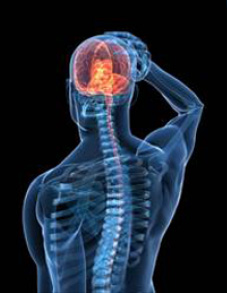What to Do When a Headache Won’t Go Away
In most cases, a headache will go away in a couple of hours – with or without treatment. However, there are some headaches that will last much longer, causing the person to suffer up to several days without relief. If you have experienced one of these headaches that just won’t go away, you understand the anxiety, frustration and emotional exhaustion that is associated with this type of headache pain.

These long-term headaches are typically classified as migraines. A migraine headache can last anywhere from 24-72 hours depending on the individual. An attack like this may feel as if it is taking over your life, but the good news is that most headaches aren’t likely to be fatal, even if they make you feel like the world is ending.
How to Treat and Prevent Long-Term Headaches
#1 – The first thing you need to do is treat the pain. Your doctor can recommend treatment for headaches or migraines, depending on your diagnosis.
#2 – You also need to take care of yourself. Get plenty of rest and sleep each day to prevent headaches or migraines from persisting. Relaxation techniques may help if you have trouble resting or sleeping.
#3 – The next thing you need to do is find out what other issues may be contributing to your headaches and deal with them. Health issues, sleep deprivation, depression or even prescription medications should all be examined and treated.
#4 – Preventative medications are another option that you should speak with your doctor about if you have these long-term headaches on a regular basis. These treatments can work for migraines as well as other types of severe headaches.
#5 – Learn what outside influences trigger your headaches. Studies have shown that alcohol consumption, lack of sleep, use of tobacco products, being overweight and other unhealthy lifestyle choices can contribute to headaches.
Other Types of Headaches
While migraines are the most common and the term is most familiar, there are other causes for long-term headaches and other names for them as well. A “rebound” headache is caused when a person takes an over the counter pain relief to manage headache pain on a regular basis. Sometimes a headache of a lesser degree will occur whenever the pain medication wears off, causing the person to take more medication and repeat the cycle.
Depression can also be a factor in long-term headaches, either as the cause or as a side-effect from all of the pain and suffering. It is important to know that headaches can be a symptom of depression as a result of sleep deprivation, an unhealthy diet and other changes to routine that can happen when a person is depressed.
Peter Wendt is a freelance writer from Austin, Texas. Unable to write due to persistent heachaches, he recently visited a headache pain doctor in Austin who obviously solved his problem.

